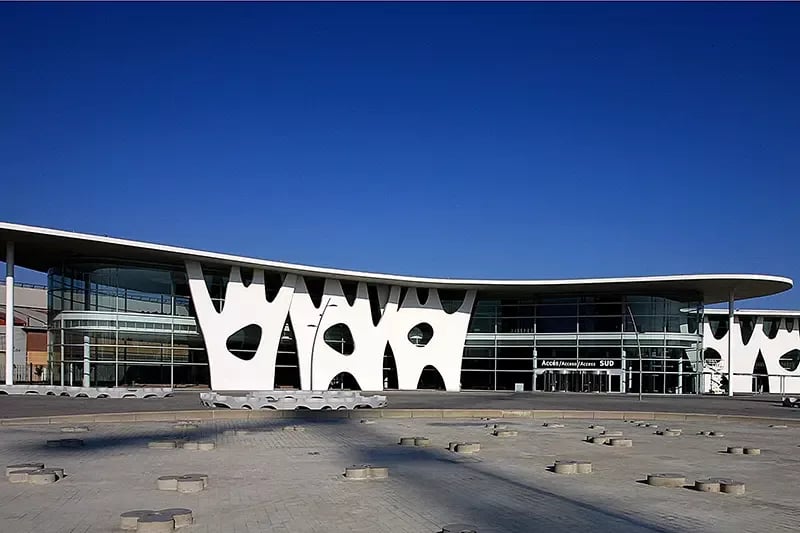News
Fira de Barcelona Addresses Drought Emergency in Catalonia

Catalonia is currently facing a drought after registering below-average rainfall for 40 consecutive months. In response to this situation the Catalan Government declared a drought emergency on February 1st. Fira de Barcelona, which has been the home of the MWC Barcelona since 2006, in line with its environmental commitment, has already been implementing different measures over the past years to improve efficiency and reduce the volume of water used during its activity and has also begun to apply additional measures due to the restrictions established in the government's emergency decree.
Since 2020, Fira de Barcelona has undertaken a series of preventive initiatives including the deployment of a digitalized water consumption control system that is able to detect leaks in real-time. As an example, in a recent event the service managed to detect two stuck flushometers and repair them in just minutes. Additionally, the venue has established an annual preventive maintenance protocol for the water network, focusing on the replacement of sections at risk of leaks. In an environmentally conscious move, Fira decided to gradually replace traditional urinals with ecological waterless versions and has reached 50% of the existing units.
Combatting Drought
But now, in response to the recent emergency decree, Fira de Barcelona has intensified its efforts to save water. Emergency measures include emptying the lakes at the Gran Via venue, with the reclaimed water repurposed by the L’Hospitalet City Hall to irrigate local parks. Ornamental fountains at the Main Entrance have been temporarily halted, and water fountains distributed throughout the pavilions have been removed.
Internally, the venue is addressing water usage with a comprehensive approach, such as inspecting and replacing taps in all toilets with automatic push-stop versions, fine-tuning automatic taps to reduce running time and minimize usage, and installing aerators in faucets – a measure that can yield water savings of up to 60%.
Additionally, the institution is extending its commitment to water conservation introducing a water-saving policy for all catering operators on-site, emphasizing responsible water use and carefully scheduling tasks to avoid overlapping them with peak water consumption periods.
The venue's proactive approach has resulted in a 25% reduction in water consumption and looking ahead, Fira de Barcelona is prepared to increase its efforts if the drought emergency advances to levels 2 and 3. Plans include the implementation of water pressure optimization systems, targeting an additional 25% reduction in the use of water during its activities.
To further stress the importance of water conservation, Fira de Barcelona in collaboration with the Government of Catalonia, Barcelona City Hall, Barcelona Hotel Guild and event organizers such as GSMA will launch a series of communication and awareness actions aimed at visitors and exhibitors, ensuring they are aware of the exceptional drought situation in Catalonia and encouraging responsible water use during their stay in Barcelona. These actions include placing stickers in all bathroom mirrors at Gran Via, posters on underground station marquees, flyers at hotel rooms, information on event apps and short messages on the digital signage elements.
Impact beyond the event venue
But what many are unaware of is that the largest impact water-wise of Fira de Barcelona’s activity does not happen at its venues but at the hotels where attendees and exhibitors stay. Along these lines, the Barcelona Hotel Guild has been working in the past 7 years to radically reduce water consumption by 40%. Among the measures taken by the hotels feature adapting their facilities to recycle grey water; installing water-saving showers and toilets; installing automatic infrared-activated taps in kitchens, bathrooms, and rooms; regularly checking and updating the piping systems to detect and prevent leaks; and adapting pool maintenance with water recirculation systems.
On top of that, the Hotel Guild has distributed 55,000 information leaflets in the rooms of its establishments to offer simple tips to guests on how to save water including encouraging the reuse of towels and sheets.
Drought emergency explained
The emergency decree declared by the Government of Catalonia on February 1st triggers as soon as the water reserves drop below 16%. A special plan to mitigate or minimize damage as the drought progresses is then activated and includes a series of measures depending on the severity of the emergency. Barcelona is currently on the first of three levels of emergency and the measures outlined for this phase include reducing water consumption to a maximum of 200 litres per person per day, 25% reduction in water consumption by industrial users, suppression of agricultural irrigation by 80%.
Barcelona is already well below the 200 litres per person per day limit. Although the current average in the city is of 173 litres, if you only take into consideration domestic use the figure drops to 98 litres.
For these reasons and amid a situation as critical as this, it is crucial that Fira, event organisers, hoteliers, exhibitors, and every attendee visiting Barcelona join the city in this fight against drought and its consequences.
Marc Serra
Director of Infrastructure and Venue Services – Fira de Barcelona